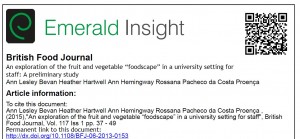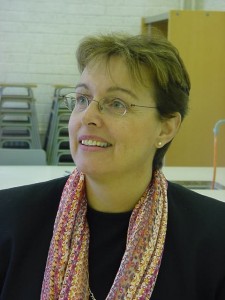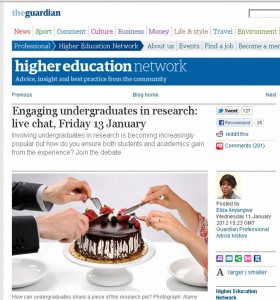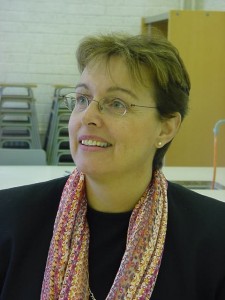My contribution to the BU Research Blog this year started on 3-1-2015 under the heading First BU publicatio n of 2015. I soon discovered that with loads of journals publishing their first issue of the new year in early January and books being published early in the new year (rather than late in the previous one) the Faculty of Health & Social Sciences had quite a few new publications lined up. It seems a nice idea to write another BU Research Blog under the title ’20/20′ referring in our case to twenty publications by January 20th with wordplay on the 20-20 perfection vision. But before January 20th the Faculty of Health & Social Sciences had already more than 20 publications.
n of 2015. I soon discovered that with loads of journals publishing their first issue of the new year in early January and books being published early in the new year (rather than late in the previous one) the Faculty of Health & Social Sciences had quite a few new publications lined up. It seems a nice idea to write another BU Research Blog under the title ’20/20′ referring in our case to twenty publications by January 20th with wordplay on the 20-20 perfection vision. But before January 20th the Faculty of Health & Social Sciences had already more than 20 publications.
The plan changed to r eport 25 publications by January 25th. This time the title in my head was ‘In the month 25-25 …’ a poor wordplay of the song ‘In the year 2525’. In The Year 2525 (Exordium & Terminus) was a hit in my youth (in the late Sixties by the US duo Denny Zager and Rick Evans). Unfortunately, this plan was short-lived too as I was made aware of several publications by Faculty of Health & Social Sciences colleagues in the space of three days.
eport 25 publications by January 25th. This time the title in my head was ‘In the month 25-25 …’ a poor wordplay of the song ‘In the year 2525’. In The Year 2525 (Exordium & Terminus) was a hit in my youth (in the late Sixties by the US duo Denny Zager and Rick Evans). Unfortunately, this plan was short-lived too as I was made aware of several publications by Faculty of Health & Social Sciences colleagues in the space of three days.
Hence the final attempt ’31 publications by January 31st!’ (published today 26th January) before I find out about further publications!
Prof. Edwin van Teijlingen
Centre for Midwifery, Maternal & Perinatal Health
Faculty of Health & Social Sciences
The list of 31 Faculty of Health & Social Sciences publication for early 2015, comprising 21 papers and ten book chapter:
- Hemingway, A., Norton, L & Aarts, C. (2015) Principles of Lifeworld Led Public Health Practice in the UK and Sweden: Reducing Health Inequalities Nursing Research & Practice, Vol. 2015 Article ID 124591, 4 pages
- Jonathan Williams and his colleagues at Cardiff University published: ‘Development of a computation biomechanical model for the investigation of infant head injury by shaking’ Medicine, Science and the Law, http://msl.sagepub.com/content/early/2014/12/30/0025802414564495.abstract
- Bernardo G.L., Pacheco da Costa Proença R, Cristin M, Calvo, M., Fiates, G.M.R., Hartwell H. (2015),”Assessment of the healthy dietary diversity of a main meal in a self-service restaurant”, British Food Journal, 117(1): 286 – 301.
- Ashencaen Crabtree, S., Parker, J. (2015) Reflections on Social Work and Human Rights, SUHAKAM Malaysian Journal of Human Rights Journal, pp.19-30 (forthcoming)
- Ashencaen Crabtree, S., Parker, J., Azman, A., Masu’d, F. (2015) Typologies of learning in international student placements, Asia Pacific Journal of Social Work & Development. Advanced access/online Doi: 10.1080/02185385.2014.1003393
- Ashencaen Crabtree, S. and Parker, J. (2015) Being male in female spaces: Perceptions of male students on masculinity on a qualifying course. Revista de Asistenţă Socială, anul XIII, 4/2014, pp. 7-26, www.swreview.ro
- Simkhada, P.P., van Teijlingen, E., Marahatta, S.B. Mental health services in Nepal: Is it too late? Journal of Manmohan Memorial Institute of Health Sciences (accepted).
- Simkhada, P., van Teijlingen E., Winter, R.C., Fanning, C., Dhungel, A., Marahatta S.B. Why are so many Nepali women killing themselves? A review of key issues Journal of Manmohan Memorial Institute of Health Sciences (accepted).
- Simkhada, P., van Teijlingen, E. Wasti, S.P., Sathian B., Mixed-methods approaches in health research in Nepal (Editorial) Nepal Journal of Epidemiology (accepted).
- Galvin, K., Todres L (2015) Dignity as honour-wound: An experiential and relational view Journal of Evaluation in Clinical Practice.
- 16. Worswick, L., Little, C., Ryan, K., Carr, E. (2015),Interprofessional learning in primary care: An exploration of the service user experience leads to a new model for co-learning Nurse Education Today
- Murphy, J., Pulman, A., Jeffery, J., Worswick, L., Ford, G., 2015. Translating research into practice: Evaluation of an e-learning resource for health care professionals to provide nutrition advice and support for cancer survivors. Nurse Education Today, 35(1), 271-276.
- Hundley, V., Luce, A., van Teijlingen Do midwives need to be more media savvy? MIDIRS (accepted).
- Rachel Arnold published from her PhD research: Arnold, R., van Teijlingen, E.R., Ryan, K., Holloway, I. (2015) Understanding Afghan health care providers: A qualitative study of the culture of care in a Kabul maternity hospital, BJOG 122: 260-267.
- Angell, C., Alexander J, Hunt J (2015) ‘Draw, write and tell’: A literature review and methodological development on the ‘draw and write’ research method, Journal of Early Childhood Research 13(1): 17-28.
- Gyawali, B., Keeling, J., van Teijlingen, E., Dhakal. L., Aro, A.R. (2015) Cervical Cancer Screening: Ethical Consideration, Medicolegal & Bioethics 5 :1-6
- Grylka-Baeschlin, S., van Teijlingen, E.R., Stoll, K., Gross, M.M. (2015) Translation and validation of the German version of the Mother-Generated Index and its application during the postnatal period. Midwifery 31(1): 47–53.
- MacKenzie Bryers, H., van Teijlingen, E. Pitchforth, E., Advocating mixed-methods approaches in health research, Nepal Journal of Epidemiology (accepted).
- Hall, J., Hundley, V., van Teijlingen, E. The Journal editor: friend or foe? Women & Birth (accepted).
- Marsh, W., Colbourne, D., Way, S., Hundley, V., 2014. Would a student run postnatal clinic make a valuable addition to midwifery education in the UK? A systematic review. Nurse Education Today. (In Press)
- Bevan A.L., Hartwell H, Hemingway, A., Rossana Pacheco da Costa Proença (2015) An exploration of the fruit and vegetable “foodscape” in a university setting for staff: A preliminary study British Food Journal, 117(1): 37-49.
Book chapters:
- Edwin van Teijlingen published a chapter on ‘Sociology of Midwifery’ in: Sociology for Midwives, Deery, R., Denny, E. & Letherby, G. (eds.) published by Polity Pres
- PhD student Sheetal Sharma is co-author of a book chapter called ‘Customs and believes surrounding newborn babies in rural areas’ published The Dynamics of Health in Nepalet al. by Himal Books, Nepal.
- Benoit, C., Sandall, J., Benoit, C., Murray, S.F., van Teijlingen E., Wrede, S., & Declercq, G. New directions in global policy: maternal health. In: E. Kuhlmann, E., Bourgeault, I. (eds.) Palgrave International Handbook on Health Care Policy & Governance, Houndmills: Palgrave Macmillan (forthcoming 2015)
- Jenny Hall has a chapter forthcoming ‘Spirituality and compassion and maternity care’ in The Roar behind the silence: why kindness, compassion and respect matter in maternity care, S. Byrom & S. Downe (eds.) published by Pinter and Martin: http://www.pinterandmartin.com/the-roar-behind-the-silence.html?
- van Teijlingen, E, Simkhada, P., Wasti, P.P. (2015) Nepal is Changing: Modernisation and Diversity in Healthcare. In: Wasti, S.P., Simkhada, P.P. & van Teijlingen, E. (Eds.) The Dynamics of Health in Nepal, Kathmandu, Nepal: Social Science Baha & Himal Books: 1-15.
- Wasti, S.P., Simkhada, P.P. & van Teijlingen, E. (Eds.) (2015) Socio-Cultural Aspects of HIV/AIDS. In: The Dynamics of Health in Nepal, Kathmandu, Nepal: Social Science Baha & Himal Books: 47-62.
- Simkhada, B., Sharma, A., van Teijlingen, E., Silwal, R.C., Simkhada, P. (2015) Exploring Maternal Mortality Reduction. In: Wasti, S.P. et al. The Dynamics of Health in Nepal, Kathmandu, Nepal: Social Science Baha & Himal Books: 95-121
- Devkota, B., van Teijlingen, E. (2015) Exploring Rebel Health Services during the Maoist People’s War. In: Wasti, S.P. et al. (Eds.) The Dynamics of Health in Nepal, Kathmandu, Nepal: Social Science Baha & Himal Books: 122-130.
- Devkota, S., Maharjan, H.M., van Teijlingen, E. (2015) Media and Health. In: Wasti, S.P., Simkhada, P.P. & van Teijlingen, E. (Eds.) The Dynamics of Health in Nepal, Kathmandu, Nepal: Social Science Baha & Himal Books: 169-184.
- Parker, J. (2015) Single Shared Assessments in social work. In J.D. Wright (ed.) The International Encyclopedia of Social and Behavioral Sciences, 2nd edn, Elsevier, http://dx.doi.org/10.1016/B978-0-08-097086-8.28105-1 .



















 Expand Your Impact: Collaboration and Networking Workshops for Researchers
Expand Your Impact: Collaboration and Networking Workshops for Researchers Visiting Prof. Sujan Marahatta presenting at BU
Visiting Prof. Sujan Marahatta presenting at BU 3C Event: Research Culture, Community & Can you Guess Who? Thursday 26 March 1-2pm
3C Event: Research Culture, Community & Can you Guess Who? Thursday 26 March 1-2pm UKCGE Recognised Research Supervision Programme: Deadline Approaching
UKCGE Recognised Research Supervision Programme: Deadline Approaching ECR Funding Open Call: Research Culture & Community Grant – Apply now
ECR Funding Open Call: Research Culture & Community Grant – Apply now ECR Funding Open Call: Research Culture & Community Grant – Application Deadline Friday 12 December
ECR Funding Open Call: Research Culture & Community Grant – Application Deadline Friday 12 December MSCA Postdoctoral Fellowships 2025 Call
MSCA Postdoctoral Fellowships 2025 Call ERC Advanced Grant 2025 Webinar
ERC Advanced Grant 2025 Webinar Update on UKRO services
Update on UKRO services European research project exploring use of ‘virtual twins’ to better manage metabolic associated fatty liver disease
European research project exploring use of ‘virtual twins’ to better manage metabolic associated fatty liver disease